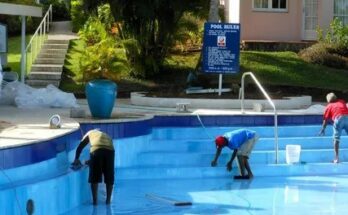Australia Cleaning Jobs
Australia’s cleaning industry is an essential pillar of public health and infrastructure maintenance, ensuring homes, workplaces, and public spaces remain safe and hygienic. From bustling city offices to serene suburban homes, cleaners play a vital role in upholding cleanliness standards. With heightened hygiene awareness post-pandemic and a growing service economy, cleaning jobs in Australia offer flexibility, steady demand, and pathways to entrepreneurship. This guide explores the landscape of cleaning careers Down Under, covering roles, qualifications, earnings, challenges, and future trends.
The Role of a Cleaner in Australia
Cleaners perform tasks that vary widely depending on their workplace. Key responsibilities include:
- Routine Cleaning: Sweeping, mopping, vacuuming, and dusting surfaces.
- Sanitization: Disinfecting high-touch areas (e.g., door handles, countertops) to prevent illness.
- Waste Management: Emptying bins and disposing of recyclables or hazardous materials.
- Specialized Tasks: Carpet shampooing, window cleaning, or pressure washing.
- Equipment Use: Operating industrial cleaners, steam machines, or floor polishers.
Common Work Environments:
- Residential homes (domestic cleaning)
- Commercial offices and retail spaces
- Healthcare facilities (hospitals, clinics)
- Schools and universities
- Hospitality venues (hotels, restaurants)
- Industrial sites (factories, construction zones)
The job demands physical stamina, attention to detail, and adaptability to different environments. Many cleaners work early mornings, evenings, or weekends to avoid disrupting business operations.
Demand for Cleaners in Australia
The cleaning sector is thriving due to several factors:
- Post-Pandemic Hygiene Priorities: Businesses and households invest more in regular sanitization.
- Tourism and Hospitality Growth: Australia’s rebound in tourism fuels demand for hotel and venue cleaners.
- Aging Population: Increased need for domestic cleaners to assist elderly residents.
- Construction Boom: Post-construction cleaning services are in demand for new residential and commercial projects.
According to the Australian Bureau of Statistics, the cleaning services industry employed over 250,000 workers in 2023. Major cities like Sydney, Melbourne, and Brisbane have the highest demand, but regional areas also offer opportunities, particularly in healthcare and aged care.
Requirements and Qualifications
While many cleaning roles are entry-level, specific requirements vary:
- Certifications:
- Police Check: Mandatory for roles in schools, healthcare, or childcare.
- Working With Children Check (WWCC): Required for cleaners in educational settings.
- White Card: Needed for construction site cleaning (covers basic safety training).
- Chemical Handling Training: Some employers require knowledge of safe cleaning product use.
- Skills: Time management, reliability, and physical fitness (lifting up to 15–20 kg).
- Driver’s License: Useful for mobile cleaners servicing multiple locations.
Formal education is rarely required, though a Certificate II or III in Cleaning Operations (via TAFE or registered training organizations) can enhance employability.
Salary Expectations for Cleaners
Earnings vary by role, location, and employment type:
- Average Hourly Rates (2023):
- New South Wales: 25–35/hour
- Victoria: 24–33/hour
- Queensland: 23–32/hour
- Western Australia: 26–36/hour
Factors Influencing Pay:
- Casual vs. Permanent: Casual workers often earn higher hourly rates (including penalty rates for weekends/evenings).
- Specialization: Hospital or industrial cleaners may earn more than domestic cleaners.
- Self-Employment: Independent cleaners set their rates (average 30–50/hour), but must cover insurance and equipment costs.
Awards under the Fair Work Ombudsman, such as the Cleaning Services Award 2020, outline minimum wages and conditions.
Challenges of Cleaning Work
The job comes with unique challenges:
- Physical Strain: Repetitive motions and heavy lifting risk musculoskeletal injuries.
- Exposure to Chemicals: Improper handling of cleaning agents can cause health issues.
- Irregular Hours: Early morning or late-night shifts may affect work-life balance.
- Client Expectations: Managing varying standards of cleanliness and communication gaps.
Employers address these through safety training, ergonomic equipment, and clear client contracts.
Benefits and Perks
Cleaning jobs offer several advantages:
- Flexibility: Part-time, casual, or contract roles suit students, parents, or retirees.
- Low Entry Barriers: Start working quickly with minimal qualifications.
- Entrepreneurial Opportunities: Build a client base and launch a cleaning business.
- Job Variety: Work in diverse settings, from luxury homes to dynamic event spaces.
Corporate roles may include benefits like paid leave, superannuation contributions, and uniforms.
Career Advancement Opportunities
Cleaning is far from a dead-end job. With experience, workers can progress to:
- Supervisory Roles: Managing teams and overseeing multiple sites.
- Specialized Cleaning: Move into areas like carpet restoration, biohazard cleanup, or pool maintenance.
- Training and Compliance: Become a safety auditor or trainer for new staff.
- Business Ownership: Start a franchise (e.g., Jim’s Cleaning) or independent venture.
Certifications like the Certificate IV in Cleaning Management or courses in green cleaning practices boost career prospects.
The Future of Cleaning Jobs in Australia
Innovation and sustainability are reshaping the industry:
- Eco-Friendly Practices: Demand for non-toxic, biodegradable cleaning products.
- Automation: Robotic vacuums and scrubbing machines handle repetitive tasks.
- Niche Markets: Growth in post-pandemic disinfection, solar panel cleaning, and crime scene cleanup.
- Digital Tools: Apps for scheduling, invoicing, and customer feedback streamline operations.
Workers who embrace technology and eco-conscious methods will stay competitive.
How to Apply for Cleaning Jobs
- Obtain Certifications: Complete required checks and training.
- Prepare a Resume: Highlight reliability, physical stamina, and relevant experience (even informal).
- Job Platforms: Use Seek, Indeed, or Gumtree. Specialized sites like Bond Cleaning Australia list niche roles.
- Agencies: Register with agencies like Cleaning Force or Absolute Domestics for domestic roles.
- Self-Employment: Register an ABN, invest in insurance, and market via social media or local directories.
Interview Tips:
- Emphasize punctuality and attention to detail.
- Provide references from past clients or employers.
Australia Cleaning Jobs
Cleaning jobs in Australia are more than just mops and buckets—they represent a resilient and evolving industry critical to community well-being. With competitive pay, flexible hours, and opportunities to carve out a niche, this sector appeals to those seeking immediate employment or long-term entrepreneurship. As hygiene standards rise and technology transforms traditional methods, skilled cleaners will remain indispensable. Whether you’re starting fresh or aiming to scale a business, Australia’s cleaning industry offers a sparkling future for dedicated professionals.



